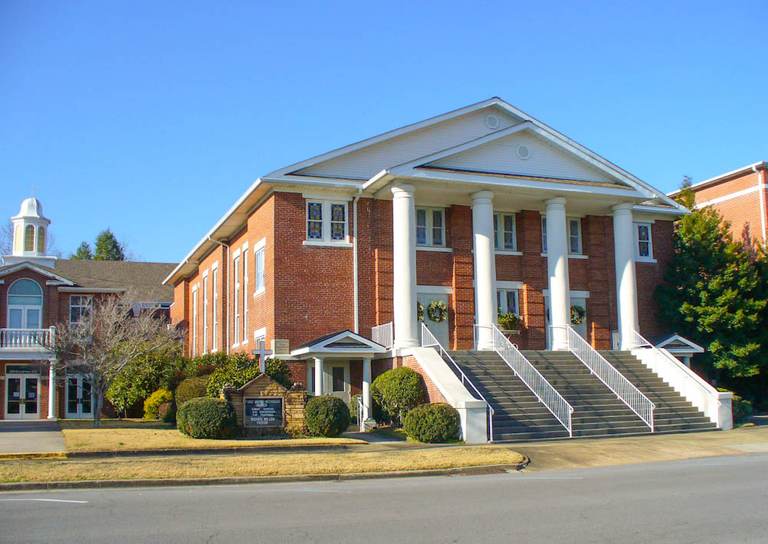Special To Southern Torch
Nick Hall
On December 10, 2022, the North Alabama Conference of The United Methodist Church (UMC) voted to approve the disaffiliation of 198 of its churches, several of which are in Dekalb and Jackson Counties. The action was part of a broader move of churches leaving the UMC worldwide.
To understand the reasons behind the sudden exodus of so many UMC churches, one must go back a few years. The UMC has been grappling with a significant division over its stance on homosexuality and same-sex marriage for a while now. The church’s official stance, as outlined in its governing document, the Book of Discipline, is that the practice of homosexuality is “incompatible with Christian teaching,” and prohibits the celebration of same-sex weddings and the ordination of openly gay clergy. However, this stance has been widely debated and challenged within the denomination, leading to a significant divide among its members. Before the denomination’s 2016 General Conference, over 100 members of its clergy and clergy candidates came out as homosexual.
One of the key events in the recent division within the UMC was the 2019 special General Conference. The conference attempted to address the issue of homosexuality and same-sex marriage and resulted in the adoption of the “Traditional Plan,” which upheld the church’s existing stance on these issues and included stricter penalties for those who violated these teachings. The adoption of the traditional plan passed by a narrow margin and was met with significant resistance from those who support a more inclusive stance, and there have been ongoing efforts to overturn the plan. The traditionalists argue that conferences within the denomination which violate the plan haven’t been held to account. They say this effectively makes homosexual clergy and same-sex marriage a violation of UMC teaching on paper but not in practice.
In another attempt to solve the issue, the UMC put forward the “Protocol of Reconciliation & Grace Through Separation” in 2020. The protocol was a plan to address the ongoing disagreement by creating a new conservative “traditionalist” Methodist denomination that would receive $25 million over the following four years. The protocol was seen as a compromise between those who support the Traditional Plan and those who support a more inclusive stance. However, it never came to a vote because the 2020 General Conference was cancelled due to the Covid pandemic. According to Pastor Jeff Tate, whose First Methodist Congregation in Fort Payne voted to disaffiliate back in November, the “Protocol” enjoyed broad support in 2020, but that support began to wane as the pandemic dragged on into 2022.
Normally, the UMC holds their General Conference every four years. However, due to the pandemic, the United Methodist haven’t held a General Conference since the special-called 2019 conference when the Traditional Plan was adopted. The plan included a provision for churches to disaffiliate provided they meet certain requirements laid out in Paragraph 25 of the plan. Many traditionalist churches viewed disaffiliation as a last resort and were holding out until the church’s next general conference. However, the UMC announced in March of last year that due to the pandemic, its next general conference wouldn’t be held until 2024, and therein lies the problem for many UMC churches. The disaffiliation clause of the Traditional Plan expires Dec. 31, 2023. This means UMC congregations who were holding out to see if the Protocol of Reconciliation & Grace Through Separation could be revived at the next conference run the risk of having no way to leave the UMC and maintain ownership of their buildings and property if they wait beyond the end of 2023 to disaffiliate. Many UMC churches, feeling their hands were forced, chose to disaffiliate while they still could, and more are likely to follow. This has become a contentious issue in the North Georgia Conference where the outgoing Bishop has refused to allow churches to disaffiliate before the end of 2023, resulting in lawsuits. According to Tate, there were no such issues within the North Alabama conference stating that, “Bishop (Debra) Wallace-Padgett made the process of disaffiliation as fair and gracious as possible.”





